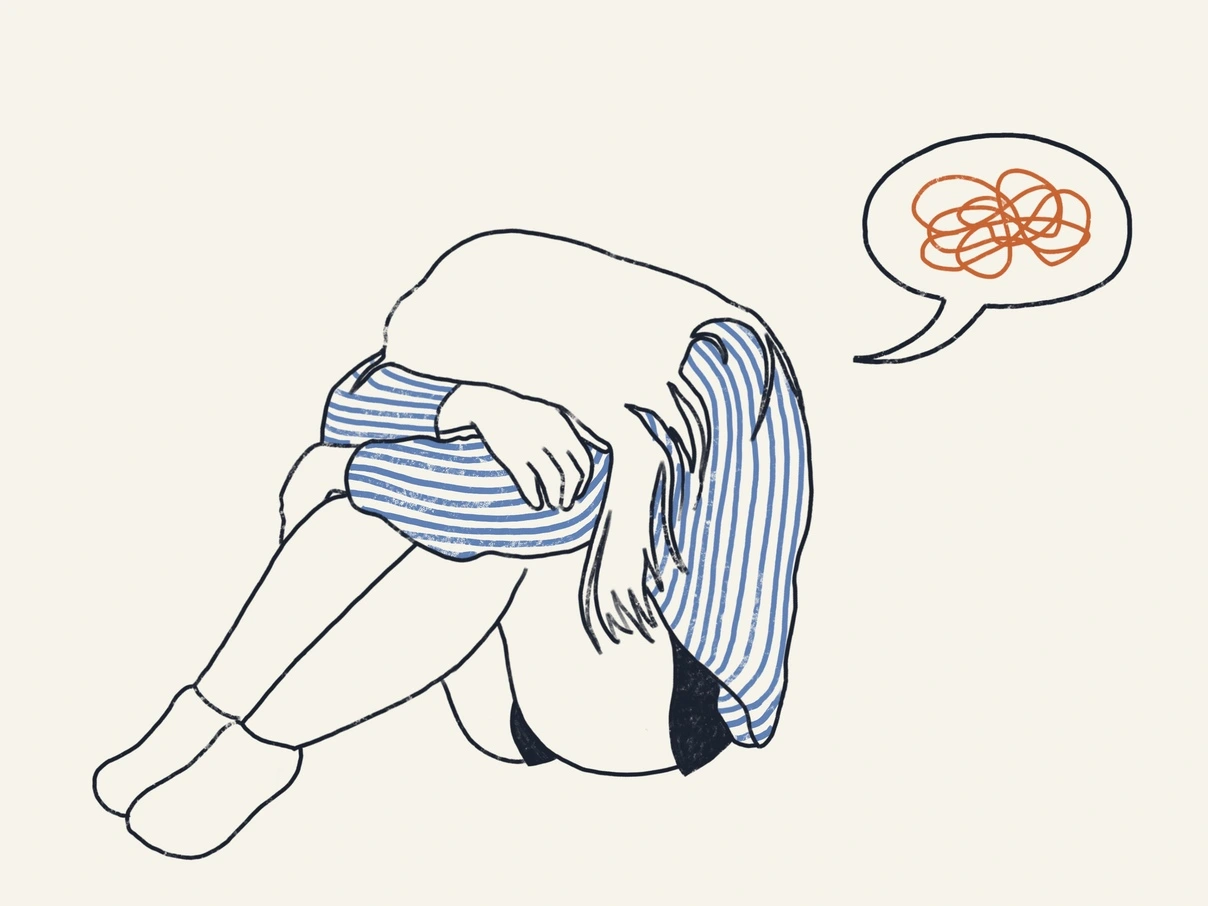
Introduction
In the complex landscape of human psychology, coping and defence mechanisms serve as vital tools for navigating the ups and downs of life. But what exactly do these terms entail, and why are they crucial for managing stress and emotions effectively?
Coping mechanisms are the conscious strategies and behaviours individuals employ to manage stress, adversity, or challenging situations. These can range from seeking social support and problem-solving to engaging in relaxation techniques and physical activity. Essentially, coping mechanisms are our adaptive responses to the demands of life, helping us to maintain emotional equilibrium and resilience in the face of adversity.
On the other hand, defence mechanisms operate at the subconscious level, shielding us from distressing thoughts, feelings, or impulses that threaten our sense of self or security. These mechanisms involve distorting reality in some way to reduce anxiety or discomfort, often without our conscious awareness. While defence mechanisms can provide temporary relief from emotional distress, they may also prevent us from fully confronting and addressing underlying issues.
Understanding coping and defence mechanisms is essential for several reasons:
Self-Awareness: By recognizing and understanding our own coping and defence mechanisms, we gain valuable insights into our thoughts, emotions, and behaviours. This self-awareness allows us to identify patterns, triggers, and areas for growth, empowering us to make positive changes in our lives.
Emotional Regulation: Coping mechanisms help us regulate our emotions and manage stress more effectively. By developing healthy coping strategies, we can reduce the impact of stressors on our mental and emotional well-being, leading to greater resilience and adaptive functioning.
Relationship Dynamics: Awareness of coping and defence mechanisms can also enhance our relationships with others. By understanding how these mechanisms influence our interactions, we can communicate more effectively, empathize with others’ experiences, and navigate conflicts with greater skill and compassion.
Personal Growth: Examining our coping and defence mechanisms can be a catalyst for personal growth and transformation. By confronting unhealthy patterns and challenging ourselves to develop healthier coping strategies, we can cultivate greater resilience, self-confidence, and overall well-being.
In essence, understanding coping and defence mechanisms is not merely an academic exercise but a practical and empowering journey toward greater self-awareness, emotional resilience, and personal growth. In the pages that follow, we will delve deeper into these concepts, exploring their nuances, impact, and practical implications for managing stress and emotions effectively.
Types of Coping Mechanisms
Adaptive coping mechanisms are the constructive strategies and behaviours individuals employ to effectively manage stress, adversity, or challenging situations. Unlike maladaptive coping mechanisms, which may exacerbate stress or lead to negative outcomes, adaptive coping strategies are geared towards addressing stressors in a healthy and constructive manner. Let’s explore some examples of adaptive coping mechanisms and how they can benefit individuals in maintaining emotional well-being.
Examples of Adaptive Coping Mechanisms:
Problem-Solving: One of the most effective adaptive coping strategies is problem-solving. Individuals who utilize this approach actively identify the source of their stress and work towards finding practical solutions. For example, if facing a challenging project at work, a person might break the task into smaller steps, set deadlines, and seek assistance or resources as needed.
Seeking Social Support: Connecting with friends, family members, or support networks can be a valuable source of emotional comfort and validation during times of stress. Sharing concerns, seeking advice, or simply spending time with loved ones can provide a sense of perspective and reassurance, reinforcing one’s emotional resilience.
Positive Reframing: Adaptive coping often involves reframing negative situations or perceptions in a more positive light. This cognitive restructuring technique helps individuals reinterpret stressful events in a way that reduces their emotional impact and fosters a sense of optimism and hope. For instance, instead of viewing a setback as a failure, a person might see it as an opportunity for growth and learning.
Mindfulness and Relaxation Techniques: Practices such as mindfulness meditation, deep breathing exercises, and progressive muscle relaxation can help individuals cultivate a sense of calm and inner peace amidst life’s challenges. These techniques promote present-moment awareness and bodily relaxation, reducing stress and promoting emotional well-being.
Engaging in Physical Activity: Regular exercise is not only beneficial for physical health but also plays a crucial role in managing stress and improving mood. Physical activity stimulates the release of endorphins, neurotransmitters that promote feelings of happiness and relaxation. Whether it’s going for a walk, practising yoga, or participating in team sports, engaging in physical activity can be a powerful coping strategy.
How Adaptive Coping Strategies Benefit Individuals:
Adaptive coping mechanisms offer several benefits for individuals seeking to address stressors and maintain emotional well-being:
Enhanced Problem-Solving Skills: By employing adaptive coping strategies such as problem-solving, individuals develop valuable skills for navigating challenges and overcoming obstacles in their lives.
Improved Emotional Regulation: Adaptive coping mechanisms help individuals regulate their emotions more effectively, reducing the impact of stressors and promoting a greater sense of emotional balance and well-being.
Increased Resilience: Engaging in adaptive coping strategies fosters resilience, enabling individuals to bounce back from setbacks and adversities with greater strength and resilience.
Enhanced Social Support: Seeking social support and connecting with others through adaptive coping mechanisms strengthens social bonds and fosters a sense of belonging and connection, which are essential for emotional well-being.
Promotion of Positive Mental Health: Overall, adaptive coping strategies contribute to positive mental health outcomes, helping individuals thrive in the face of life’s challenges and adversities.
In summary, adaptive coping mechanisms are essential tools for managing stress, fostering emotional well-being, and promoting resilience. By incorporating these strategies into their daily lives, individuals can effectively navigate life’s ups and downs with greater confidence, strength, and positivity.
Maladaptive Coping Mechanisms
While coping mechanisms are essential for managing stress and adversity, some approaches can be counterproductive and even harmful in the long term. These maladaptive coping mechanisms provide temporary relief from distress but often exacerbate underlying issues and lead to negative consequences for individuals’ well-being. Let’s explore some examples of maladaptive coping strategies and discuss their negative effects.
Examples of Maladaptive Coping Mechanisms:
Avoidance: Avoidance involves ignoring or withdrawing from stressful situations or emotions rather than confronting them directly. For example, a person may procrastinate on important tasks to avoid feelings of anxiety or inadequacy, leading to increased stress and poor performance in the long run.
Substance Abuse: Turning to drugs, alcohol, or other substances as a way to escape from reality or numb painful emotions is a common maladaptive coping strategy. While substances may provide temporary relief, they can lead to addiction, and physical health problems, and further exacerbate mental health issues.
Denial: Denial involves refusing to acknowledge or accept the reality of a stressful situation or emotion. For instance, a person may deny the severity of a health problem or the impact of a traumatic event, preventing them from seeking necessary help and support.
Self-Harm: Engaging in self-harming behaviours, such as cutting or burning oneself, is a maladaptive coping mechanism used to cope with intense emotional pain or distress. While self-harm may provide temporary relief, it can cause serious physical harm and indicate underlying mental health issues that require professional intervention.
Emotional Eating: Using food as a means of coping with stress, boredom, or negative emotions is a maladaptive coping strategy that can lead to weight gain, poor nutrition, and negative body image. Emotional eating fails to address the root causes of emotional distress and can perpetuate a cycle of unhealthy behaviours.
Escapism: Engaging in excessive escapism, such as binge-watching television, gaming, or spending excessive time on social media, is a maladaptive coping mechanism used to avoid facing problems or emotions. While escapism may provide temporary distraction, it can lead to social isolation, neglect of responsibilities, and feelings of emptiness or dissatisfaction.
Negative Effects of Maladaptive Coping Mechanisms:
Maladaptive coping mechanisms can have several negative effects on individuals’ well-being:
Escalation of Problems: Rather than addressing the root causes of stress or emotional distress, maladaptive coping strategies often exacerbate underlying issues and lead to further problems in the long term.
Interference with Functioning: Maladaptive coping mechanisms can interfere with individuals’ ability to function effectively in their daily lives, impairing performance at work, school, or in relationships.
Physical and Mental Health Consequences: Substance abuse, self-harm, and other maladaptive coping strategies can have serious physical and mental health consequences, including addiction, injury, and exacerbation of mental health disorders.
Social Isolation: Engaging in maladaptive coping mechanisms may lead to social withdrawal and isolation, as individuals may feel ashamed or reluctant to seek help or support from others.
Cycle of Dependency: Individuals who rely on maladaptive coping mechanisms may become trapped in a cycle of dependency, continually seeking temporary relief from distress without addressing underlying issues or developing healthier coping strategies.
In summary, maladaptive coping mechanisms provide temporary relief from distress but often lead to negative consequences for individuals’ well-being in the long term. Recognizing and addressing these harmful coping strategies is essential for promoting healthier and more effective ways of managing stress and adversity.
Impact on Mental Health
The reliance on maladaptive coping and defence mechanisms can have profound effects on individuals’ mental health, contributing to a range of negative outcomes and hindering overall well-being. Let’s explore the impact of these mechanisms on mental health and how over-reliance on them can lead to difficulties in relationships, self-awareness, and personal growth.
1. Increased Psychological Distress:
Maladaptive coping and defence mechanisms may provide temporary relief from emotional pain or distress, but they ultimately fail to address the underlying issues. This can result in a cycle of escalating psychological distress, as individuals continue to rely on ineffective strategies to cope with stressors.
2. Impaired Relationships:
Over-reliance on maladaptive coping and defence mechanisms can strain relationships with others. Projection, denial, and displacement, for example, may lead to misunderstandings, conflicts, and breakdowns in communication. These mechanisms can prevent individuals from taking responsibility for their actions or empathizing with others’ perspectives, undermining trust and intimacy in relationships.
3. Limited Self-Awareness:
Maladaptive coping and defence mechanisms often involve avoiding or denying uncomfortable truths about oneself or one’s circumstances. As a result, individuals may lack insight into their own behaviours, emotions, and motivations. This limited self-awareness can hinder personal growth and prevent individuals from addressing underlying issues that contribute to their distress.
4. Stunted Personal Growth:
Over-reliance on maladaptive coping and defence mechanisms can impede personal growth and development. Instead of facing challenges head-on and learning from difficult experiences, individuals may resort to avoidance, denial, or other harmful strategies to cope with stressors. This can lead to a stagnation in personal growth and a lack of resilience in the face of future challenges.
5. Exacerbation of Mental Health Disorders:
Maladaptive coping and defence mechanisms are often associated with various mental health disorders, such as anxiety, depression, and substance abuse. These mechanisms may provide temporary relief from symptoms, but they ultimately exacerbate the underlying issues and contribute to the maintenance of mental health problems.
6. Difficulty Seeking Help:
Individuals who rely heavily on maladaptive coping and defence mechanisms may be resistant to seeking professional help or support. Denial, rationalization, and avoidance may prevent individuals from acknowledging the severity of their problems or recognizing the need for intervention. This can delay or hinder access to effective treatment and support services.
In summary, over-reliance on maladaptive coping and defence mechanisms can have significant negative consequences for individuals’ mental health and well-being. These mechanisms not only fail to address underlying issues but also exacerbate psychological distress, strain relationships, limit self-awareness, impede personal growth, and contribute to the maintenance of mental health disorders. Recognizing the impact of these mechanisms is essential for promoting healthier coping strategies and fostering positive mental health outcomes.
Recognizing and Addressing Unhealthy Patterns
Recognizing unhealthy coping and defence mechanisms in oneself or others is the first step towards fostering positive change and promoting psychological well-being. Here are some tips for recognizing these patterns and suggestions for developing healthier coping strategies and seeking support when needed:
Self-Reflection:
Take time to reflect on your thoughts, emotions, and behaviours. Pay attention to recurring patterns or reactions that may indicate unhealthy coping mechanisms, such as denial, avoidance, or excessive self-criticism.
Increased Awareness:
Educate yourself about common defence mechanisms and their impact on mental health. Awareness of these patterns can help you recognize when you or others may be using them to cope with stressors.
Emotional Awareness:
Practice mindfulness and emotional awareness techniques to become more attuned to your feelings and reactions. Notice when you are experiencing distressing emotions and explore healthy ways of processing and expressing them.
Seek Feedback:
Ask trusted friends, family members, or mental health professionals for feedback on your coping strategies and defence mechanisms. They may offer valuable insights and perspectives that can help you identify areas for growth.
Challenge Negative Thought Patterns:
Challenge negative thought patterns or cognitive distortions that contribute to unhealthy coping mechanisms, such as all-or-nothing thinking or catastrophizing. Replace negative thoughts with more balanced and realistic alternatives.
Develop Healthy Coping Strategies:
Experiment with different coping strategies to find what works best for you. Healthy coping mechanisms include seeking social support, practising relaxation techniques, engaging in physical activity, and problem-solving.
Build Resilience:
Focus on building resilience by developing adaptive coping skills and strategies for managing stress and adversity. This may involve cultivating a growth mindset, setting realistic goals, and learning from setbacks and failures.
Practice Self-Compassion:
Be kind and compassionate towards yourself, especially during difficult times. Treat yourself with the same understanding and empathy that you would offer to a friend facing similar challenges.
Seek Professional Support:
If you’re struggling to cope with stress or mental health issues, don’t hesitate to seek professional support. A therapist or counsellor can provide guidance, support, and evidence-based interventions to help you develop healthier coping strategies and address underlying issues.
Engage in Self-Care:
Prioritize self-care activities that nourish your mind, body, and soul. This may include getting enough sleep, eating nutritious foods, engaging in hobbies and interests, and setting boundaries to protect your mental and emotional well-being.
By recognizing unhealthy coping and defence mechanisms, developing healthier strategies, and seeking support when needed, you can cultivate greater resilience, emotional well-being, and personal growth. Remember that change takes time and effort, so be patient and compassionate with yourself as you embark on this journey toward greater self-awareness and fulfilment.


 Title
Title  Date
Date Category
Category